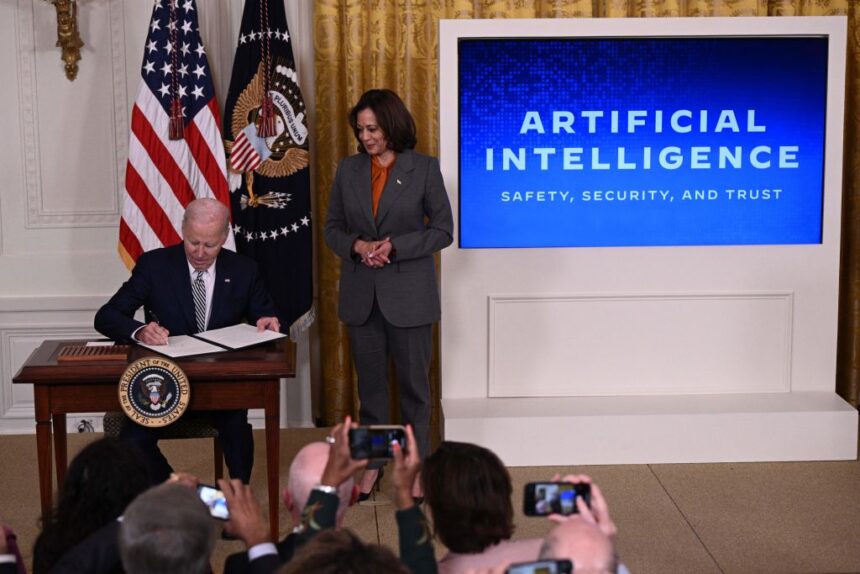As healthcare marketers scramble to build out AI practices in light of the ChatGPT boom, many have wondered how the technology might manifest.
Depending on how you ask, that could be either for good and for bad in the “Wild West” that exists in AI, with few defining regulations in place.
Now, the federal government has officially made one step toward defining its regulatory stance.
President Joe Biden announced an executive order for AI regulation last week, including eight guiding priorities that would seek to “harness AI for good” and realize its myriad benefits, while also mitigating its substantial risks.
What’s in the AI order?
The order requires federal agencies like the Department of Health and Human Services to develop responsible AI standards in the coming years – while adhering to those guiding principles.
It also requires companies to notify the federal government if they’re creating an AI model that involves a national security or public health risk.
Among the eight principles, the White House noted that AI “must be safe and secure,” promote responsible innovation and both support and allow workers to have a seat at the table to benefit from opportunities it presents.
AI policies should also be in line with the Biden administration’s commitment to equity and civil rights, the order said.
For healthcare in particular, Biden wants the HHS to create a regulatory unit that can monitor emerging AI tools as they’re developed, review them before they go to the market and then track their performance once they’re being used. The thinking is to create a safety net that stops any potential harmful AI practices.
While the Food and Drug Administration currently has some of its own AI guidelines when it comes to medical devices or other products that require the agency’s approval, there are plenty of things going on in the healthcare space that don’t fall within its purview.
Still, the executive order isn’t just about reigning in the risks of AI. The White House also wants to see if it can spur and encourage innovation in healthcare through AI – such as using the technology to improve access to care or create new drugs.
To that end, Biden directed HHS to begin investing into initiatives like AI tools that can create personalized health and immune-response profiles for patients.
The White House also indicated that it wants HHS to see if AI can improve health care data quality and decrease administrative burdens.
The clock is already ticking as Biden has given the HHS and other federal agencies involved a year to develop their AI regulatory plans.
Industry’s regulatory response
Initial reactions from the healthcare industry included some concerns that more regulation could potentially raise costs – and create plenty of challenges for companies experimenting in the space.
“In general, it’s a good idea, and I applaud the initiative,” noted Atropos Health CEO Brigham Hyde. “A lot of the themes are things all of us in this industry believe in. Filling a space that was uncertain is a good thing for everybody.”
Hyde pointed to the “conundrum” that regulation could create when it comes to deep learning, for example.
“Inherently, those algorithms are supposed to improve every time, and the algorithm is changing perhaps every second, or every time it’s run,” Hyde explained. “If you’re trying to regulate that algorithm, I don’t know how you would necessarily do that. Going back to transparency and quality, does that mean every time it learns you have to produce a new transparency and quality report?”
He added that this implies a significant infrastructure lift that could potentially cut off innovation in the process.
At the same time, responsible AI regulations might actually be “a boon for life science startups,” according to Dave Latshaw, CEO and co-founder of Biophy and a former AI drug development lead at Johnson & Johnson.
“As regulations become more defined, we can expect a surge in opportunities for AI specialists in life sciences,” he said in a statement.
Either way, Hyde believes that healthcare marketing agencies will need to prepare for more regulation – and the sooner, the better.
“I would be thinking about getting your infrastructure up to speed quickly with a focus on audit, transparency, and bias detection and reporting,” Hyde said.







